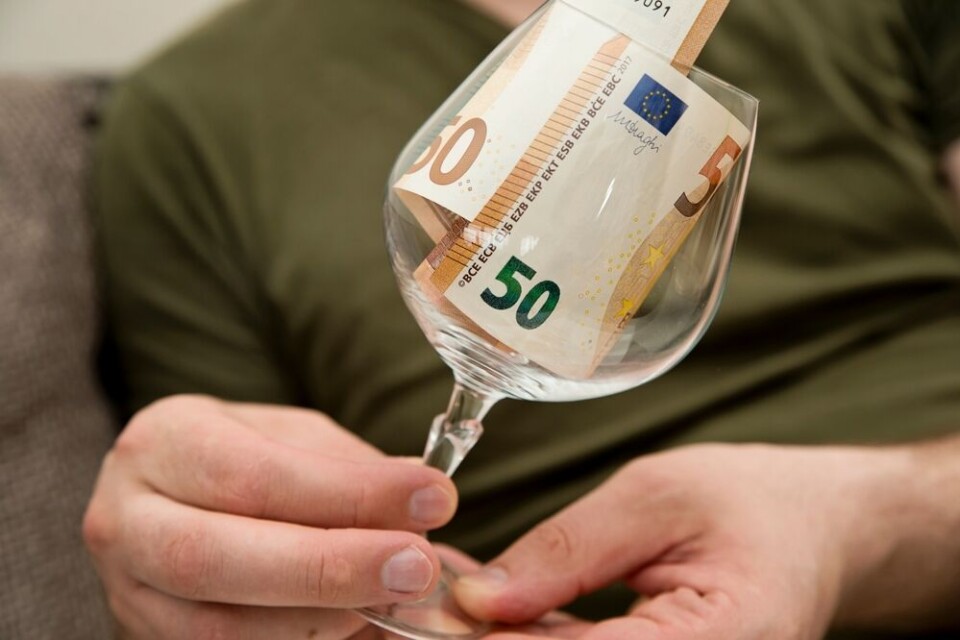-
New Paris-Jersey direct flight to launch this summer
Loganair route forms part of Channel Island’s tourism boost plan
-
Death of right-wing protester in Lyon sparks fears of further political violence
Quentin D, 23, died after reportedly being ambushed by far-left activists near site of political conference
-
Red flood alerts continue in south-west - and more heavy rain expected
Garonne river is particularly affected. French weekly weather forecast February 16 - 20
Anger as French government mulls raising alcohol taxes
France’s health minister said the move would help fight alcohol addiction. But critics say it is just another way for the government to make money

The price of alcohol in France could increase after the government said it was considering increasing taxes.
The move is expected to feature in the 2024 budget, which the Assemblée Nationale is set to examine this autumn.
Similar approach to tobacco
Health Minister François Braun told BFM-RMC on Thursday (July 20) that when it comes to the budget, “as with all years, everything is on the table, so that we can talk about it”.
He added that he would be “in favour [of the option] so we can fight against addiction, as we have done with tobacco.”
Taxation des alcools : "Notre combat est contre la consommation excessive d'alcool (...) le PLFSS sera l'occasion d'un débat sur le taux de prélèvement sur certains produits dont ceux à base d'alcool, notamment les alcools forts", pointe @FrcsBraun.#PLFSS2024 #DirectAN #QAG pic.twitter.com/zzfBcu99Du
— LCP (@LCP) July 18, 2023
Currently, the permitted rise in taxes on alcoholic drinks is 1.75%, regardless of inflation levels.
France’s Economy Minister Bruno Le Maire said he would like to change this, so increases would be linked to inflation too.
Taxes would also vary depending on the type of product and the alcohol level.
The change was already proposed to the Assemblée Nationale’s social affairs committee (commission des affaires sociales) in June. It called for “the prices of products subject to excise duty to change no less rapidly than those of everyday consumer goods”.
This would bring the changes in line with taxes levied on tobacco, some packets of which exceeded €11 on May 1.
‘Behaviour tax’
The tax is considered a ‘behaviour tax’, said Mr Le Maire, with the report adding that such changes are “applied with a view…to directing consumer behaviour towards practices deemed more virtuous, particularly from the point of view of public health”.
“Taxes on tobacco products, for example, are regularly debated and are the subject of abundant literature. This is less the case for taxes on alcohol or sugar-sweetened beverages, which are nonetheless responsible for major addictive trends,” Mr Le Maire said.
Mr Braun added: “I want to make it very clear that our fight is not against a particular industry but against excessive alcohol consumption. Our approach is based on prevention and moderation. Above all, it's a public health issue.”
How much would the rise be?
The economy ministry has suggested that the rise would be “minimal and only a few cents”.
This could mean a 0.3-cent increase for a bottle of wine and 1 to 2 cents for stronger alcohol.
However, professionals in the drinks industry have said they worry the rises could be much higher, and add up to €2 to the price of a bottle.
Spirits federation la Fédération française des spiritueux told Le Figaro that its research showed that “a rise in prices systematically leads to a fall in consumption, even among the 'heaviest' consumers”.
Political opposition
The plans have also sparked ire from opposition parties, who have said it is just another way to make money and could threaten producers.
Fabien Roussel, national secretary of the hard-left Parti communiste français, said on Twitter: "Stop the hypocrisy! This scheme has nothing to do with public health. It's just another way of picking the pockets of the French, especially the poorest, while the richest break records for their fortunes.”
MP Grégoire de Fournas, from the far-right Rassemblement National party, who is also a winegrower, said: “At a time when the French wine industry is facing very serious difficulties, the government is planning to add to the burden with a new tax on alcohol.
“Enough of the persecution of our winegrowing heritage,” he added.
Alors que la viticulture française affronte de très graves difficultés, le Gouvernement envisage d’alourdir le fardeau avec une nouvelle taxe sur les alcools.
— Grégoire de Fournas (@gdefournas) July 18, 2023
Assez de la persécution de notre patrimoine viticole !https://t.co/s3MdbMIRgj
Read also
Where in France do people admit to drinking too much alcohol?
What are alcohol limits for France-UK travel? Per person or per car?
























